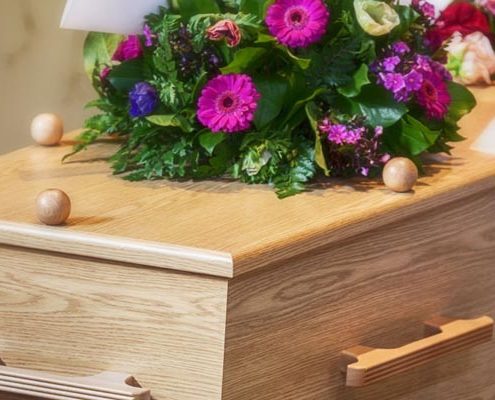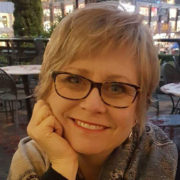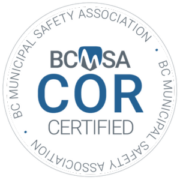Let’s Talk about Death and Dying
 I have the very special opportunity to join a group of hosts on a new weekly public radio show that is solely centred around death, dying and loss. The show’s hosts are from varied backgrounds and present a wide (and sometimes alternative) perspective on death and dying. The show is called Death Matters Live and is broadcast on Vancouver Co-op Radio (www.DeathMattersLiveRadio.com).
I have the very special opportunity to join a group of hosts on a new weekly public radio show that is solely centred around death, dying and loss. The show’s hosts are from varied backgrounds and present a wide (and sometimes alternative) perspective on death and dying. The show is called Death Matters Live and is broadcast on Vancouver Co-op Radio (www.DeathMattersLiveRadio.com).
Among the show’s hosts are myself, a Death Coach and a Life-Cycle Celebrant. Those of you who are from liturgical backgrounds will recognize the role of a celebrant in officiating church ceremony. A death coach walks alongside and supports an individual who is dying and supports their families for months after their loved one dies. These co-hosts are not affiliated with the church. For reasons of their own, they have travelled a different path with their beliefs.
Without religion to guide milestone ceremonies, there is a growing need for the 41 per cent of British Columbians who have no religious affiliation and 33 per cent of those in their 20’s have never attended a religious institution to find support in grieving and dying. For thousands of years, this has been the role of the church. That is no longer the case. People who lived their lives outside of the church don’t want to suddenly become religious at their funeral.
Sometimes, people can’t find the kind of support they need. This past year in our community, there was a terrible murder-suicide where a father took the life of his daughter. She was a key member of our city’s youth theatre troupe and the entire group lives the pain of their friends’ death. How does a community support the grief of these young people? Where can they turn?
My co-hosts on the radio show are opening my eyes to the incredible need that we have in our society to begin conversations around death and dying. I can be out of touch as I work in a faith-based community of seniors.
In my work with the elderly, many of whom have a deep faith in Christ and belief in a life beyond the grave, the topic can be quite comfortable. Sunday after Sunday we sing hymns that echo our belief about dying and eternal life in Christ: “And I shall dwell in the house of the Lord forever…” When the roll is called up yonder, I’ll be there”; “Some glad morning when this life is over, I’ll fly away,..”; “In the sweet by and by… we shall meet on that beautiful shore…” I’ve got a mansion just over the hilltop, in that bright land where we’ll never grow old…”
We know that the elder years are full of grief and loss. In the Amish communities of Pennsylvania, women show their grief by wearing black for appointed amounts of time based on the relationship they had to the one who died. In their elder years, the women end up wearing black daily as their number of loved ones passing increases. Amish fabric stores sell over 60 shades of black to provide some variety for the women who are in this mourning stage of life.
For those who aren’t religious, who don’t sing songs about death and eternal life and who don’t gather regularly with people to share spiritual connection, the topic of death may never enter the conversation. Even for those who sing these songs, it is entirely different to talk about these intimate and important topics. It takes tremendous courage to embark on these topics when they are less common, scary, unfamiliar and even controversial among those you love.
In an effort to ease the discomfort in talking about death and dying, Death Cafés and Death Over Dinner Parties are popping up around our communities. These are non-religious intentional events that have a pre-defined structure to help people converse about these difficult topics. There is a growing interest and it isn’t just with those who are terminal, palliative or old. For many, it is a time to remember a loved one in a way that moves them into and further along in their grief and healing.
Walking alongside of those who are experiencing death and dying is one of the great privileges of the Christian community – and this doesn’t change as our society becomes more secular. Regardless of our beliefs, we need others with whom to share our loss. We need to talk about our own dying journey and our grieving hearts. We need to have safe places to unload our burdens, relieve our fears and share our hope. We need to find places to express our doubts and find our faith again. We need safe and wise people to guide us into hope and strength, forgiveness and peace. We need ceremony and opportunity for meaningful speeches. We need closure.
This is why it is such a privilege to offer faith-based care at the end of life and in the elder years. Faith-based care is the compassionate pastoral care that allows those who are dying to safely enter into the places where they are facing existential suffering. This can include facing regrets, broken relationships, fears, doubts and painful memories. It can include faith conversations and the planning of a life celebration.
I’ll never forget the most surprising support I’ve seen at the end of life. It was when my own father was in his final days. Paralyzed from multiple sclerosis and dying of infection, he lay motionless in the hospital bed in the Intensive Care Unit. Conservative, Christian, proper and commanding, my father had a presence and a protocol about his life. One day, a dear friend and colleague (they were both doctors) arrived for a final good-bye. Both had served overseas in medical missions, both had served locally for years in healthcare and in church. After a few words, I watched in shock and delight as my father’s dear friend climbed into the bed with my father, wrapped his arms around him and hugged my father with his whole being. It was one of the most significant and courageous expressions of end-of-life support that I have ever witnessed. Unfettered love.
Our encouragement in all of this is to take a step (even an uncomfortable step) into these conversations around death and dying. It may mean that you think about your own end in a meaningful way and talk about it with a friend. You might attend a Death Café. It could be that you ask a widow how she is doing months or years after the death of her spouse. It may mean volunteering to drive a cancer patient to chemo treatments. It may be as stretching as asking your dying loved one how you can support them as they face their final days or leading a Grief Care support group at your church. It could be that you receive training to be a pastoral care volunteer – or perhaps a palliative support volunteer who sits with those who are dying when their families are unable. Perhaps you are the one who goes to the school after a tragedy and offers to listen to a student who is grieving. In the murder-suicide case in our community, a chorale leader organized a celebration of life for the theatre school in a donated church space to grieve together and honor a beloved friend whose life ended so tragically.
Our world is changing, but our mandate remains the same, “Bear one another’s burdens and in this way, fulfill the Law of Christ.” Galatians 6:2. The opportunity to support people in these key times of death, dying and loss gives us what we long for – shared joys that are doubled, shared burdens that are halved.

Sharon Simpson
Sharon Simpson is the Director, Communications and Stakeholder Engagement at Menno Place, a senior’s campus-of-care located in Abbotsford, BC. She regularly writes for Menno Place, The Light Magazine, and the MB Herald.






